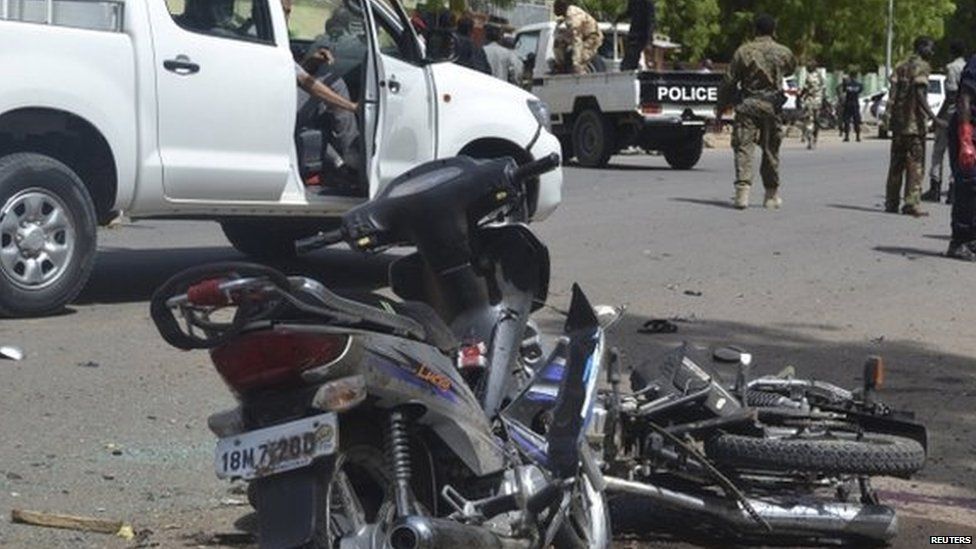-
31 July 2015
- From the section Africa

MPs in Chad have voted to reinstate the death penalty for acts of terrorism six months after it was abolished.
The unanimous vote by 146 of the 189 members of parliament present followed recent attacks by Boko Haram Islamist militants from neighbouring Nigeria.
Officials in the mainly Muslim nation have already banned the full Islamic veil in response to suicide bombings.
Chad has been instrumental in helping Nigeria recapture territory from the insurgents earlier this year.
Opposition and civil liberties groups have criticised the new anti-terror legislation that was passed on Thursday evening, saying it could be used to curb civil rights.
A boosted multinational task force set up to tackle Boko Haram becomes operational on Friday and will be based in Chad’s capital, N’Djamena.
The 8,700 troops from Cameroon, Chad, Niger and Nigeria will be able to cross borders to pursue the insurgents, Nigeria’s army spokesman Col Sani Usman told the BBC.
Nigeria’s new President Muhammadu Buhari has made the multinational force central to his government’s strategy in tackling the insurgency.
Although the militants have lost their strongholds, they are still active and there has been an upsurge in suicide attacks since he took office in May.
On Friday morning, a bomb blast killed at least five people in north-eastern Nigerian city of Maiduguri, which Mr Buhari has made the base of his military’s headquarters.
Witnesses told the BBC that a female suicide bomber blew herself up on a tricycle “loaded with explosives” targeting grocers heading towards Gamboru market.
Boko Haram at a glance
- Founded in 2002, initially focused on opposing Western-style education – Boko Haram means “Western education is forbidden” in the Hausa language
- Launched military operations in 2009
- Thousands killed, mostly in north-eastern Nigeria, abducted hundreds, including at least 200 schoolgirls
- Joined Islamic State, now calls itself “West African province”
- Seized large area in north-east, where it declared caliphate
- Regional force has retaken most territory this year


